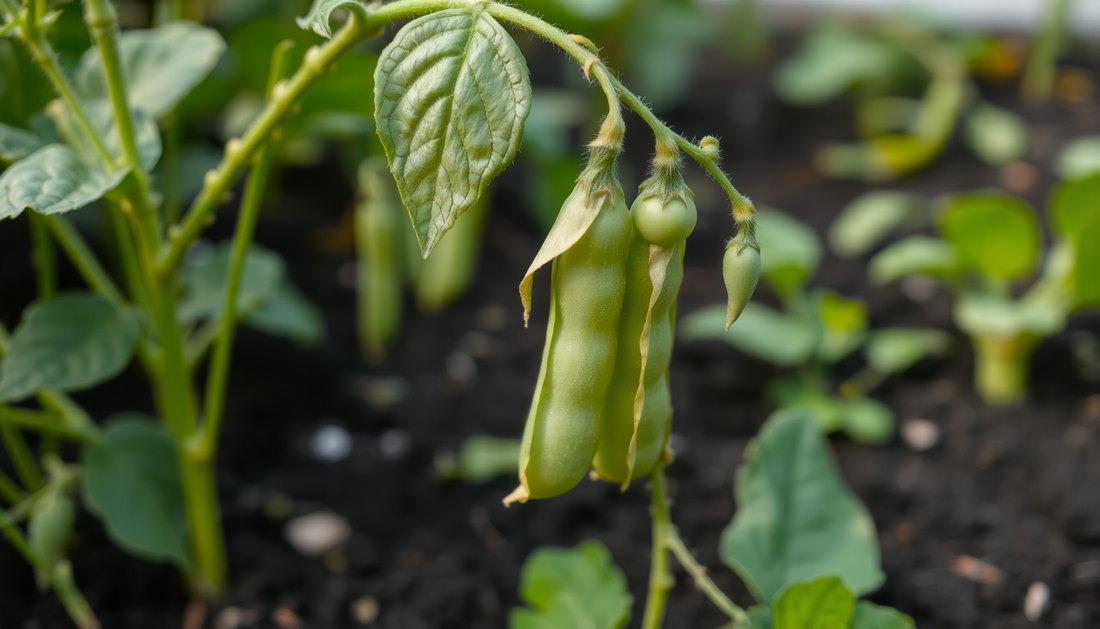
Why Are My Peas Wilting Suddenly?
Share
It's a common sight in many gardens - lush, green pea plants suddenly start to wilt and droop, leaving gardeners scratching their heads. As the owner of Idyl, an online plant and gardening supply shop in Bangalore, I've seen this issue come up time and time again. In this blog post, I'll dive into the potential causes of sudden pea plant wilting and share some tips to help you get your pea patch back on track.
Identifying the Problem
The first step in addressing wilting peas is to properly identify the issue. Pea plants can wilt for a variety of reasons, from environmental stresses to pest infestations. Take a close look at your plants and see if you notice any of the following symptoms:
- Leaves turning yellow or brown and drooping
- Stems becoming soft and limp
- Stunted growth or failure to thrive
- Discoloration or rotting at the base of the plant
Determining the underlying cause is crucial, as the treatment will vary depending on the problem.
Potential Causes of Pea Wilting
-
Overwatering: One of the most common reasons for pea plants to wilt is too much water. Peas prefer well-drained soil and can quickly develop root rot if they're sitting in soggy conditions. Check the soil moisture and make sure you're not inadvertently drowning your plants.
-
Underwatering: On the flip side, insufficient water can also lead to wilting. Peas need consistent moisture, especially during hot, dry spells. Make sure you're providing at least 1-2 inches of water per week, adjusting as needed based on weather conditions.
-
Disease: Fungal diseases like powdery mildew, downy mildew, and root rot can all cause pea plants to wilt and decline. These issues are often exacerbated by poor air circulation or overly wet soil.
-
Pests: Aphids, pea leaf weevils, and other insects can feed on pea plants, disrupting their ability to take up water and nutrients. Look for signs of pest damage, such as chewed leaves or stems.
-
Temperature Stress: Peas prefer cooler weather, and sudden spikes in temperature can shock the plants, leading to wilting. Make sure you're growing your peas in a spot that gets some afternoon shade during the hottest parts of the day.
-
Nutrient Deficiencies: If your pea plants are lacking in essential nutrients like nitrogen, phosphorus, or potassium, they may struggle to thrive and become more susceptible to wilting.
Addressing Wilting Pea Plants
Once you've identified the underlying cause of the wilting, you can take steps to remedy the situation. Here are some tips:
Overwatering
- Allow the soil to partially dry out between waterings, checking the moisture level before adding more water.
- Improve drainage by amending the soil with compost or sand.
- Ensure your pea plants are in a spot with good air circulation to prevent fungal issues.
Underwatering
- Increase the frequency and/or amount of water you're providing, aiming for 1-2 inches per week.
- Mulch around the base of the plants to help retain soil moisture.
- Consider installing a drip irrigation system for consistent, even watering.
Disease
- Treat any fungal issues with an appropriate organic fungicide or by removing and destroying affected plant parts.
- Improve air circulation around the plants and ensure the soil isn't staying too wet.
Pests
- Use insecticidal soap or neem oil to control aphids and other pea-munching insects.
- Introduce beneficial insects like ladybugs or lacewings to help manage pest populations naturally.
Temperature Stress
- Provide some afternoon shade, either with a physical structure or by planting taller companion crops.
- Consider using row covers or cloches to protect pea plants from extreme heat or cold.
Nutrient Deficiencies
- Test your soil and amend it with the appropriate fertilizers or compost to address any nutrient imbalances.
- Apply a balanced, organic fertilizer formulated for legumes to give your pea plants a nutrient boost.
With a little detective work and the right care, you can get your pea plants back to their healthy, thriving selves. Remember, prevention is key - pay close attention to your pea patch and address any issues before they spiral out of control.
At Idyl, we're passionate about helping gardeners of all levels grow their dream gardens. Whether you need high-quality plants, organic fertilizers, or expert advice, our team is here to support you. Visit our online shop or reach out to us directly - we're always happy to lend a hand.
Happy gardening!
